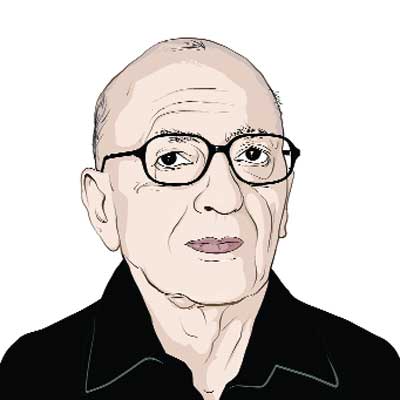Opinion Let the Sheikh try
How Nehru put his faith behind Sheikh Abdullah to forge a solution acceptable to Kashmir,India and Pakistan
Having written about the Hazratbal crisis in Kashmir in December 1963-January 1964,when the entire Valley seemed to be hanging by a hair (IE,August 9),it is necessary to carry the story forward to the phenomenal upheavals hugely important follow-up. Remarkably,the issue underlying the new development was uppermost in the minds of most Kashmiris even during the crisis over the missing holy relic. But no one articulated it,presumably because the agitators immediate demand asli mujrim ko pesh karo (produce the real culprit) took precedence.
However,Lal Bahadur Shastri,with his prodigious political acumen and vast experience,had quietly concluded that without releasing Sheikh Mohammed Abdullah,Kashmirs towering leader,from prolonged imprisonment and seeking his cooperation,it would be very difficult to stabilise the sensitive state. He was equally convinced that the Kamaraj-ed Bakshi Ghulam Mohammeds nominee as his successor,Shamsuddin,must go. This was easily done. Within a month,the bumbling chief minister had made way for the much-respected G. M. Sadiq. Shastri wasnt so sure,however,whether his colleagues in New Delhi would agree to the Sheikhs release at that juncture,even though the state government was in full agreement with him. He need not have worried.
On his return home,when Shastri went straight to meet the prime minister,he found that Nehrus thinking was far ahead of his. Nehru who,having suffered a stroke,was not in the best of health not only wanted to free Sheikh Abdullah but also to encourage him to go to Pakistan to explore the prospects of a peaceful settlement of the Kashmir question. Let the Sheikh try,he said.
The Sheikh was first arrested in August 1953,besides being dismissed as Jammu and Kashmirs first chief minister. By demanding immediate independence for Kashmir that had acceded to the Indian Union under his own leadership,he had left Nehru with no other option. The Sheikhs authoritarian successor,the Bakshi,found it expedient to keep him locked up longer than necessary. Under Nehrus pressure,however,he released Sheikh Abdullah in 1958,only to re-arrest him within a few months on the ground that his predecessor was still singing his theme song of independence for Kashmir.
This time around the Bakshi in Srinagar and the Intelligence Bureau in New Delhi launched the Kashmir conspiracy case that virtually charged the Sheikh with treason and with being in the pay of Pakistan. As elsewhere in India under similar circumstances,so in Jammu,the trial went on and on like a bad Bollywood film.
Something had to be done about this case,therefore,before the jails door could be opened to let Sheikh Abdullah off. Nehru called a meeting of his top advisors and told them that the time had come to withdraw the Kashmir conspiracy case. Surprisingly,he encountered strong opposition from,of all people,the intelligence czar of that era,B. N. Mullik,who usually enjoyed the prime ministers full confidence. When Mullik claimed that he would prove the charges against the Sheikh within a few days,a visibly angry Nehru thumped the table and remarked: You havent been able to do it for years. Dont talk of days.
On April 8 1964,in the Jammu special court,the state government withdrew the Kashmir conspiracy case. The Sheikh strode out and decided to go to Srinagar through a circumambulatory route via Kishtwar and Bhadarwah districts of Jammu,receiving adulation from surging crowds all the way. Sometime in the midst of this tumult he received Nehrus message inviting him to Delhi,to be his house-guest at Teen Murti,and discuss what the two of them together could do. The old friends hadnt met face to face for more than a decade. Yet,when they did,there wasnt the slightest recrimination. The two talked cordially as if nothing had happened.
One night,while the Sheikh was still under the prime ministers roof,Mir Qasim,later chief minister of J&K,got a phone call asking him to see Panditji at once. On arrival,he was told that Sheikh sahib was talking in terms of a confederation of India,Pakistan and Kashmir. His reaction: Sir,kaan kaat di jiye. Whose ears am I supposed to cut? Nehru asked testily. No,sir,I am suggesting that instead of confederation let us talk of a federation.
President Ayub Khan turned down the Sheikhs suggestion summarily though he (and his countrymen) welcomed the idea of a fresh summit with Nehru in June. It is needless to add that Nehrus death put paid to the Sheikhs mission with all its nuances. Since I have written at length about Pakistans heart-warming reaction to Nehrus passing (IE,May 29,2009),as well as elsewhere,let me report whatever has remained unknown about the Sheikhs first and last visit to Pakistan.
Pakistan had given him a rapturous welcome usually reserved for either a national hero or the head of a very friendly state. There was no dearth of fawning on and flattery of him. Every Pakistan wanted him to say something about Kashmirs affinity with the Islamic Republic of Pakistan,but he would do nothing of the sort. He insisted that the solution must be acceptable equally to India,Pakistan and the Kashmiri people. When some members of the Pakistan national assembly complained to him that Uncle Sam had ceased to be of help,he retorted: If so,why are the nephews clinging to him?
It was at Muzaffarabad,the capital of Azad Kashmir usually out of bounds for Indian visitors,that the news of Nehrus death reached us. As I started rushing back immediately,the Sheikh stood sobbing uncontrollably. He looked every inch a man who knew that some superior force had cut the ground from under his feet. Regrettably,within a year of Nehrus passing,the Sheikh was back in detention. After a pilgrimage to Mecca he had gone to Algiers where he met Zhou Enlai. Nothing could have been more infuriating than this to a people still traumatised by the 1962 war. He was taken into custody the moment he landed in Delhi.
The writer is a Delhi-based political commentator


